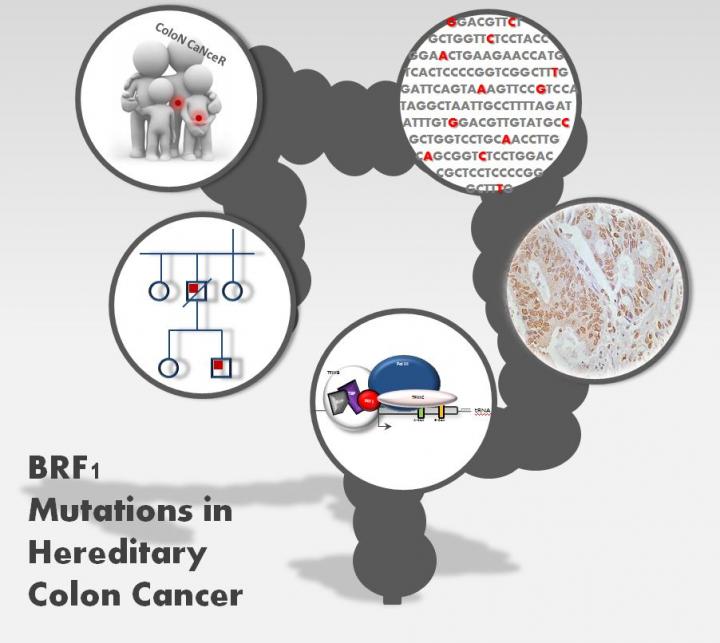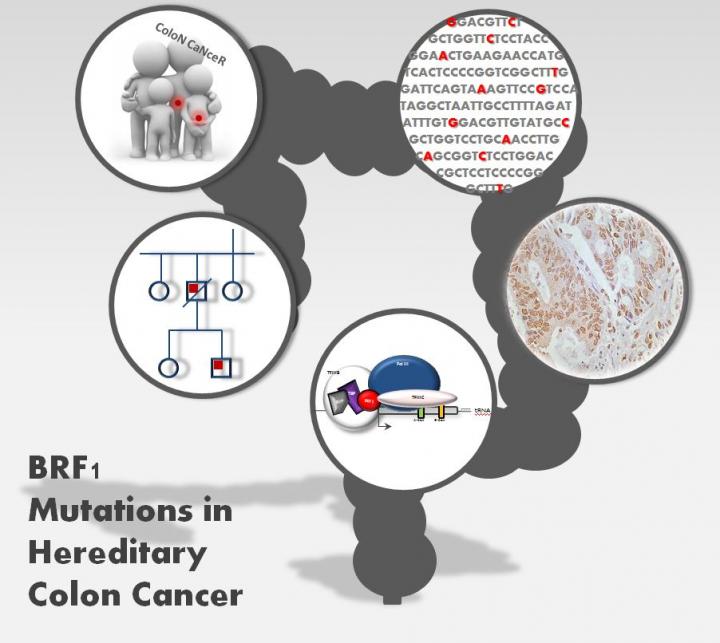
Credit: IDIBELL
Researchers from the Hereditary Cancer group of the Oncobell Program of the Bellvitge Biomedical Research Institute (IDIBELL) – Hereditary Cancer Program of the Catalan Institute of Oncology (ICO) have found a new genetic marker that would explain up to 1.4% of those inherited colon cancer cases not related to the mutations currently associated with this disease. This finding, made possible by the new techniques of genetic sequencing, was the result of collaboration among several other research groups at national and international level.
"Our group primarily focuses on genetic markers of hereditary colon cancer," said Dr. Laura Valle, lead author of the study. "In recent years, we have sequenced the exome – all genes – from high-risk families with several members affected by colon cancer but who do not have the genetic mutations currently associated with this disease. The aim is to identify the altered genes that cause the aggregation of cancer in these families. If we do so, mutation carriers can enter into personalized follow-up programs to detect early onset of cancer, and even prevent it."
As for the work published by the journal Gastroenterology, the researchers singled out the BRF1 gene as a family colon cancer gene. "This gene has been mutated in tumors but has never been associated with cancer risk", says Dr. Valle. Sequencing of this gene in more than 500 samples from families with familial cancer aggregation but without alterations in normal high risk genes revealed 11 new rare gene variants. After several functional studies, the researchers concluded that 7 of the 11 variants could be related to the increased risk of developing cancer in carrier families.
Thus, 1.4% of cases of hereditary colon cancer could be explained by alterations in the BRF1 gene. "It's a low percentage," admits the IDIBELL researcher, "but we have reached a point where the "big genes" responsible for hereditary cancer have already been discovered. We only have "minor genes" to unveil, but obviously the impact for those affected is still enormous".
The finding, once validated by other research groups, could allow patients with mutations in this gene to follow a clinical approach much more consistent with their genetics. "In that sense, we keep working on the identification of genetic mutations and other types of not-so-conventional alterations that allow us to explain how many more cases of hereditary cancer," concludes Valle.
###
Media Contact
Gemma Fornons
[email protected]
34-638-685-074
@idibell_en
Original Source
http://www.idibell.cat/modul/news/en/1022/a-new-genetic-marker-accounts-for-up-to-14-of-cases-of-hereditary-colon-cancer http://dx.doi.org/10.1053/j.gastro.2017.09.005





